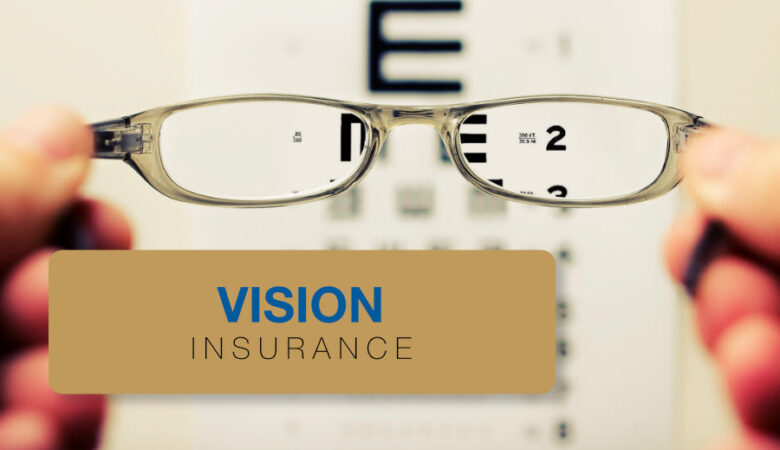As a freelancer, your eyes are the most important thing. Whether you spend hours in front of a computer screen, talking to clients or working on a creative project, your vision is important to your work. That’s why having vision insurance is just as important as having health or dental insurance. In this comprehensive guide, we’ll discuss why vision insurance is important, the different types of plans available to employees, how to choose the plan that best suits your needs, and more.
Why Buying Vision Insurance is Important:
Take Good Care of Your Eyes
These people are called freelancers and spend a lot of time behind a screen. This can lead to eye strain, headaches, and even more dangerous conditions like computer vision syndrome. Regular eye exams can help detect these problems early and prevent them from getting worse. Freelancers can keep their eyes healthy by having regular eye exams. Vision insurance can help pay for these exams.
Save Money on Glasses
Whether you need contact lenses or glasses, the costs can quickly add up. Vision insurance can help cover these costs, making it easier and faster to get the glasses you need for your job. Some vision insurance plans also offer savings on glasses and contact lenses, which can further reduce your out-of-pocket costs.
Receive Good Care
With eye care insurance, you receive care from a network of ophthalmologists, so you can be assured that you will receive good care when you need it. This is especially important if you have special eye health needs or require specialized care. Eye insurance can give you peace of mind knowing that if something goes wrong, you are covered.
Different Types of Vision Insurance:
Vision Benefit Package
Some health insurance plans include eye care as part of their primary coverage. Typically, these packages cover the cost of an annual eye exam and may offer discounts on eyeglasses. Vision plans cover different things and cost different amounts, so it’s important to read the terms of the plan carefully.
Vision Insurance Itself
If your health insurance does not cover this, you can separate your vision insurance from your health insurance. The costs and benefits of these plans vary, so it’s important to read the fine print to make sure they meet your needs. Vision insurance plans that operate separately typically cover vision exams, glasses, and contact lenses.
Discounted Vision Plan
Discount subscriptions can help you save money on eye care and glasses, but you usually have to pay for these yourself. While they can save you money, they may not provide as much coverage as other types of eye insurance. Discount vision plans can be helpful for employees who do not need regular eye care but want to save on the cost of an ophthalmologist visit.
How You Choose the Best Vision Insurance:
Coverage
When choosing a vision insurance plan, think about what it covers. You should look for a plan that covers the eye care and glasses or contact lenses you need. Some plans may also cover other services, such as LASIK surgery.
Cost
Consider how much a vision insurance plan costs, including deductibles, copays and monthly payments. Find out how much different plans cost to get one that fits your budget and gives you the benefits you need.
Connect
You should check to see if your favorite ophthalmologist is part of your eye insurance network. Seeing a therapist in your insurance plan’s network can help you get the most out of your benefits and reduce your out-of-pocket costs.
Coverage Limits
Find out if there are any limitations or restrictions on your vision insurance plan’s coverage. For example, some plans may limit the frequency of eye exams or the types of glasses covered. Make sure the plan you choose meets your needs.
Conclusion:
Obtaining vision insurance is an important part of staying healthy and happy as an employee. Learn about the benefits of vision insurance, the different types of coverage, and how to choose the plan that best suits your needs to ensure your eyes are well cared for while you’re at work. Protect your vision and lifestyle.
FAQs:
1. Why do employees need vision insurance?
Many freelancers spend a lot of time in front of a computer, which can lead to eye strain and other vision problems. Freelancers can keep their eyes healthy and work easily if they have vision insurance to help pay for regular eye exams and glasses.
2. What do most eye insurance policies cover?
Vision insurance usually covers part of the costs of annual eye exams and glasses or contact lenses. Some plans may also offer discounts on additional services, such as LASIK surgery.
3. How much does eye insurance cost for freelancers?
The cost of Vision insurance for freelancers can vary depending on the company they choose and the amount of coverage they need. Typically, freelancers pay $10 to $50 per month for eye insurance.
4. Can a freelancer get vision insurance without participating in another plan?
Employees can purchase a separate vision insurance plan if their current health insurance does not cover vision. These plans are separate from other insurance policies and only cover eye care treatments and glasses.
5. How do employees choose the best eye insurance?
When choosing an eye insurance plan for freelancers, they should consider factors such as coverage, costs, provider network, and coverage limits. They should carefully review the details of each plan to ensure it fits their needs and budget.


